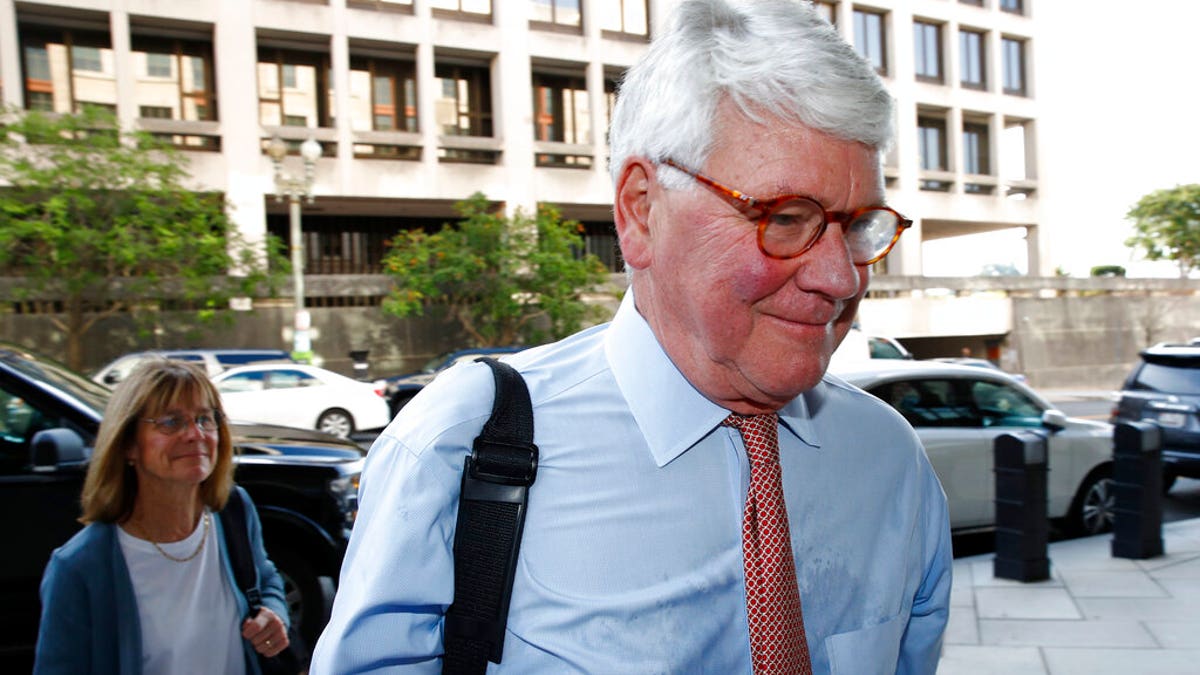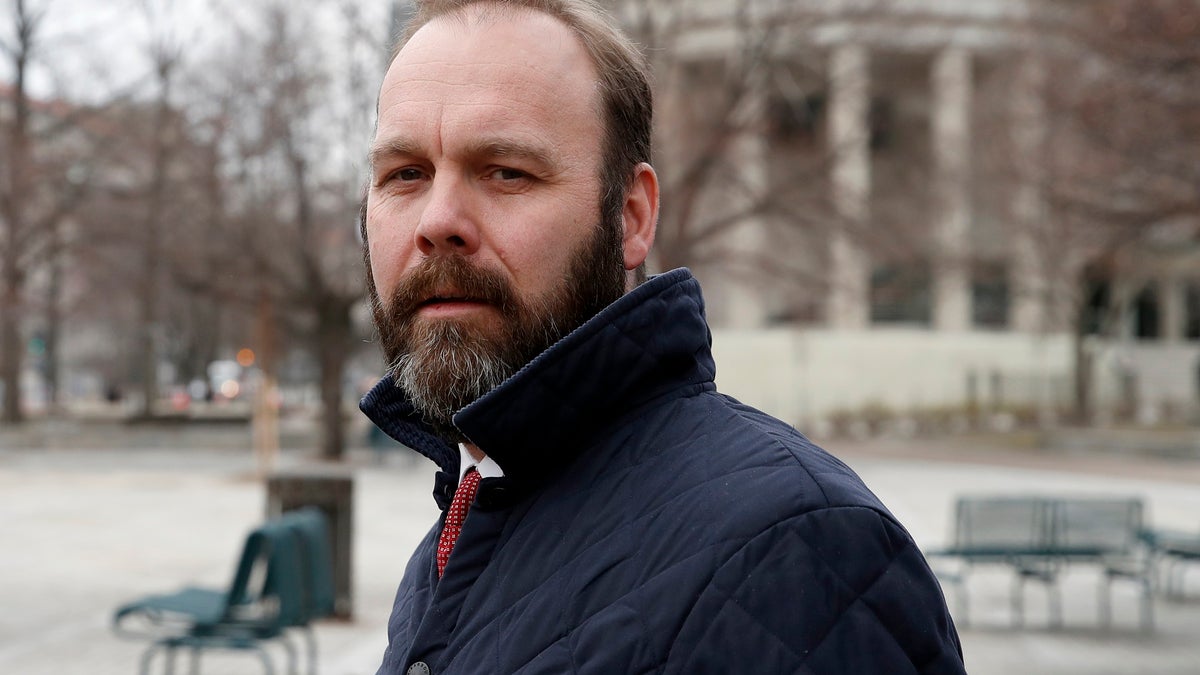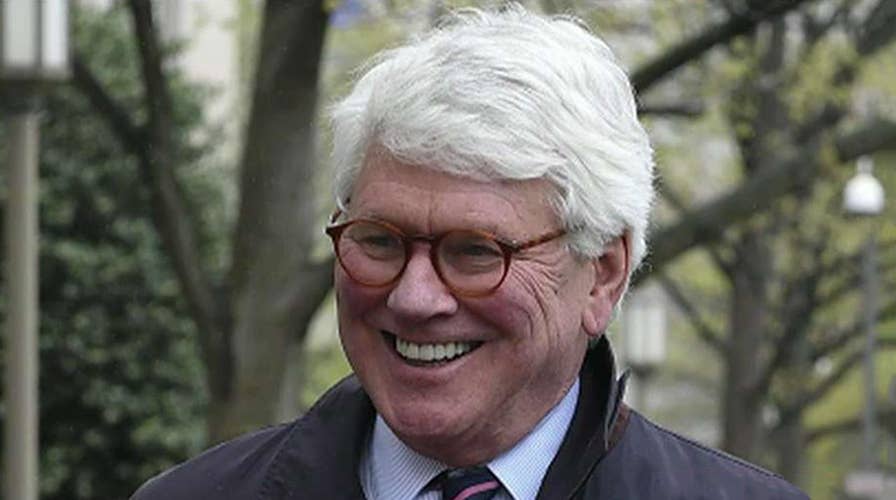Jury finds former Obama White House counsel Greg Craig not guilty of lying to feds about his work with Ukraine
The jury deliberated for about four hours before finding Craig not guilty on one count of lying to the government.
Greg Craig, a prominent Washington lawyer and former White House counsel under President Barack Obama, was found not guilty by a jury Wednesday of false statements to the Justice Department about his work for the pro-Russian government of Ukraine in 2012.
The verdict, which came after approximately four hours of deliberations in a Washington, D.C. federal courthouse, was a major setback for the DOJ's recently redoubled efforts to scrutinize unregistered overseas lobbying work. Craig, 74, hugged his attorneys after the verdict was read.
One juror remarked after the verdict: "What infuriates me, is that the special counsel wasted so much time on an issue like this one, while the republic itself is under assault."
Other jurors said they found Craig to be credible if not entirely forthright in some of his communications, and that it was difficult to find Craig had specifically committed a crime within the "narrow" period prescribed by the applicable statute of limitations. Jurors would have needed to find criminal conduct after October 3, 2013 -- although some said they had concerns about Craig's conduct before that cutoff date.
"He walked up to the line and may very well have crossed it," another juror said.
Craig attorney William Taylor told reporters after the verdict that it was a "tragedy" and a "disgrace" that the DOJ had decided to "hound" Craig even after the Southern District of New York passed on prosecuting him. But for his part, Craig struck an upbeat tone.
"I have a few things to say," Craig said. "One is, I first want to thank the jury for your service, and for doing justice in this case, I am thankful for them in so many ways. I want to thank my family and my friends who were with me throughout all of this, and I want to thank my lawyers who made it all possible. and that's all. Thank you."
In April, Craig became the first prominent Democrat to be indicted in a case arising from Special Counsel Robert Mueller's now-completed probe into Russian election interference. Mueller referred the Craig case to prosecutors in New York last year after uncovering possible wrongdoing while he investigated former Trump campaign manager Paul Manafort's Ukraine lobbying.

Greg Craig, former White House counsel to former President Barack Obama, walks into a federal courthouse for his trial, Thursday, Aug. 22, 2019, in Washington. (AP Photo/Patrick Semansky)
The grand jury indicted Craig on two counts of making false and misleading statements to investigators -- including Mueller's team and the DOJ National Security Division's FARA Unit -- in connection with his work on behalf of Russia-backed former President of Ukraine Viktor Yanukovych. One of those counts was dismissed before trial.
The work that drew the Justice Department's attention occurred in 2012, when Craig and his law firm at the time — Skadden, Arps, Slate, Meagher & Flom — were engaged by the government of Ukraine to review the prosecution of Yulia Tymoshenko, a former Ukrainian prime minister, and produce a report on whether the trial met Western standards of justice.
Tymoshenko was a political opponent of Yanukovych, a longtime Manafort patron and a political figure whom Manafort associate Rick Gates said he and Manafort had helped get elected.
The report was billed as independent, but critics have said it whitewashed a politically motivated prosecution, and Gates acknowledged on the witness stand that the document was conceived as a way to counter international criticism that Tymoshenko had been denied a fair trial.
WHY DID MICHAEL FLYNN FIRE ALL HIS LAWYERS?
Craig did not register his work with a Justice Department unit tasked with enforcing FARA. Prosecutors said he resisted registering because he feared it would prevent him or others at the firm from getting federal jobs in the future, and because he believed doing so would have meant disclosing that a third party had paid more than $4 million for the report.
Though prosecutors did not charge Craig with failing to register, they had said he gave misleading information when the Justice Department's FARA unit contacted the firm about the work and whether it required registration.
In February 2012, prosecutors said, Craig emailed the co-author of the report, writing, "I don't want to register as a foreign agent under FARA. I think we don't have to with this assignment, yes?"
"He walked up to the line and may very well have crossed it."
Two months later, Craig emailed, "I don't really care who you ask [about the FARA requirements] but we need an answer from someone who we can rely on with a straight face."
On December 15, 2012, after the report's release, a lobbyist wrote to Craig that media coverage on the report was glowing: "You are back in the headlines internationally. ... People in Kiev are very happy. You are 'THE MAN.'"
Prosecutors have argued that Craig lied about his interactions with New York Times reporter David Sanger, claiming that Crag told his partners at Skadden and officials at the FARA Unit that he did not reach out to Sanger.
However, emails between the two men revealed at trial showed that Craig did contact Sanger about the report, even hand-delivering the report to Sanger's home before publication.
"He chose to conceal the facts and that was the crime," prosecutor Fernando Campoamor-Sanchez said of Craig during closing arguments."When the FARA Unit asked him questions, he concealed because at the end of the day, his reputation would have been tarnished."
"It's not a crime to work on a report, or even to get $4 million out of a bank account in Cyprus," Campoamor-Sanchez added. "It is a crime to conceal. It is a crime to craft your answers so they don't even make sense. That is a crime."

Former Trump campaign associate Rick Gates pleaded guilty to charges brought by Special Counsel Robert Mueller and faces up to 71 months in federal prison. (AP)
During the trial, Craig took the stand in his own defense, and said the report identified significant flaws with the handling of Tymoshenko’s case. That conclusion went against the interests of the Ukrainian government, which clearly wanted the trial to be depicted as fair in order to counter international criticism of the proceedings.
Craig said he discussed the report’s findings with Western journalists, including from The New York Times, only because he was concerned the media would portray it in Ukraine’s favor. He testified that because his position was contrary to that of the Ukrainian government, he did not view himself as a foreign agent and did not think it necessary to register as one with the Justice Department.
Defense attorney William Murphy, in closing arguments that lasted about two hours, maintained that Craig "did not knowingly and willfully act to deceive" the FARA Unit and allegations that his legal services crossed a line into foreign lobbying were untrue.
"Did he really have a motive to lie and impugn his own reputation?" Murphy asked. "He had no motive to lie and he didn't lie."
Alex van der Zwaan, a former Craig associate at Skadden, pleaded guilty to lying to authorities and served a 30-day prison sentence last year. Craig also likely would have faced little prison time had he been convicted.
The Craig prosecution came amid an ongoing Justice Department crackdown on unregistered lobbying in the U.S. on behalf of foreign governments and other entities. The Mueller team relied on FARA to pursue top former Trump aides, including Michael Flynn and Manafort, even though FARA had rarely been enforced in the past.
The FARA law, enacted in 1938 to unmask Nazi propaganda in the United States, requires people to disclose to the Justice Department when they advocate, lobby or perform public relations work in the U.S. on behalf of a foreign government or political entity.
Craig, who is now retired, has represented a litany of powerful political figures in his decades-long legal career. He worked on President Bill Clinton's defense during impeachment proceedings, and also represented former U.N. Secretary General Kofi Annan, former North Carolina Sen. John Edwards and James Cartwright, a retired general and former vice chairman of the Joint Chiefs of Staff. Craig also served as an adviser to the late Sen. Edward Kennedy of Massachusetts and former Secretary of State Madeleine Albright.
Fox News' Jake Gibson and The Associated Press contributed to this report.






















